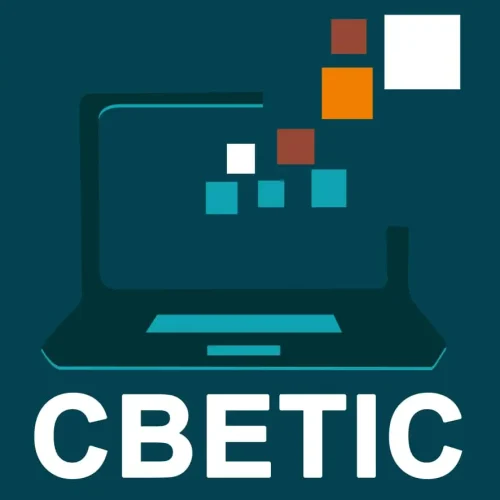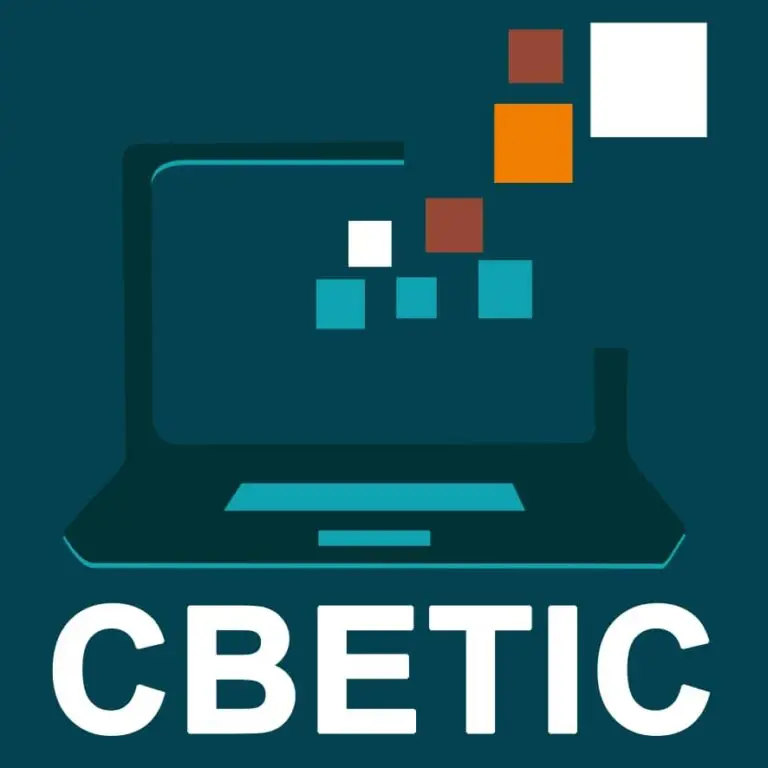The contribution of the African telecommunications union in the development of telecommunications/ICTs in Africa is a cornerstone for the development of the digital economy in constantly evolving worldwide. Africa cannot develop without this new trend of economic growth based on the set of economic activities in which the use of digitalized knowledge and information are the key factor of production. The efficiency and optimization of African economic structures will only be achieved through the rational use of information and communication technologies. It is clear that African countries are still bogged down in terms of connectivity and other major concerns. TIC-ACTUALITES of the Burundi ICT Centre of expertise approached the secretary general of the ATU to decipher together the development of telecommunications/ICTs on the african continent.
TIC-ACTUALITES: Mr. secretary general of the African telecommunications union, welcome to the Burundi ICT center of expertise’s platform, TIC-ACTUALITES, dedicated to educating the public on ICT adoption and internet-related topics. It is a pleasure to have you with us for the first time. Could you kindly introduce yourself and share more about the African telecommunications union with our audience?
ATU SG: Let me begin by expressing my gratitude to TIC-ACTUALITES for allowing me to share my views regarding the growth and development of telecommunications/ICTs in Africa. My name is John OMO, and I am currently tasked with leading the African telecommunications union (ATU) secretariat as the secretary general.
ATU was established in 1977 as the specialized telecommunications and ICT agency of the African union (then OAU), mandated to advance Africa’s digital development. Today, we proudly serve 52 African countries who are our Member States and 56 Associate members, including ICT operators, all working together to expand access to digital services, promote innovation, and strengthen ICT infrastructure across the continent. We are presently headquartered in Nairobi, Kenya, and in the simplest of definitions, we exist so that Africa can be fully connected and digitally empowered.
TIC-ACTUALITES: What benefits does a member country of ATU gain, considering that each ATU member State makes an annual contribution to its operational fund?
ATU SG: ATU members benefit from the unique role that the Union plays in promoting telecommunications/ICTs, and championing Africa’s interests in international telecommunication/ICT fora through various ways.
To give a snapshot:
The Union is constantly engaged in the development of appropriate policy and regulatory frameworks, as well as reference documents critical to the development of telecommunications/ICTs across African countries. For instance, ATU has developed a strategy framework to migrate Africa from IPv4 to IPV6, a model framework on Data centres and cloud computing services and Infrastructures for Africa, a common digital security policy and standards for network security and information systems and the 4th Industrial revolution (4IR) Strategy. These policy and regulatory frameworks and reference documents assist member States in domesticating their own policies and regulations, enhancing the development of digital infrastructure, promoting digital literacy and skills, ensuring responsible e-waste management, integrating emerging technologies, and hastening the efforts to bridge Africa’s digital divide.
ATU member States also benefit from ATU’s role as the primary interface with the International telecommunications union (ITU). Through this role, ATU coordinates the participation and representation of the interests of member States in global ITU conferences, ensuring that Africa’s needs and concerns are effectively addressed and that the voice of African countries is heard.
member States further benefit from ATU initiatives aimed at enhancing the exchange of best practices and experiences, as well as capacity building and training. For example, through ATU conferences and workshops bringing together industry experts and leaders from various regions, countries and organizations, member States have to share their experiences and best practices.
TIC-ACTUALITES: Does the African telecommunications union have a strategic plan for ICT development in Africa? If so, what are its current priority activities?
ATU SG: Definitely, ATU has a strategic plan that guides its activities and initiatives towards the development of telecommunications/ICTs in Africa. At the moment, our strategic plan, which we revise and renew periodically, covers the 2023-2027 period. The current ATU Strategic Plan has five thematic priorities/ pillars through which the Union aims to promote coordinated development, deployment and usage of ICTs for meaningful digital transformation of Africa. The five pillars include infrastructure and connectivity, digital Services, cybersecurity and data management, enabling environment, and ICT human capacity development. The strategic plan breaks down the thematic priorities into achievable strategic objectives, interventions and results while also aligning ATU activities with the Africa union’s agenda 2030, United union’s Sustainable development goals (SDGs) and ITU strategic plan, ensuring ICTs are at the centre of sustainable development in Africa.
TIC-ACTUALITES: How do you assess the commitment of ATU Member States in implementing the recommendations of the Union’s administrative council?
ATU SG: Article 9 of the ATU Constitution stipulates the roles and functions of the Administrative council, including the overall responsibility of guiding the administration of the Union; taking necessary measures to facilitate the implementation of the constitution, the convention and other regulations and decisions of the Union by Member States; and promoting international cooperation among member States.
The ATU member States have, on the whole, shown great commitment to fulfilling recommendations of our Administrative council meetings and continue to support the Union in accomplishing its activities and initiatives. As a membership-driven organization, ATU’s success relies on membership contribution and goodwill. Although the Union’s financial position and ability to achieve its set goals have been impacted by outstanding contributions by some Member States, a significant majority of member States have dutifully honoured their financial obligations to the Union, enabling the Union to undertake its mandate to the continent.
Additionally, under the ATU’s coordination, member States have continued to foster international cooperation and strategic collaboration among themselves and with regional and international organizations, undertaking joint initiatives in areas of common interest and driving cross-border digital connectivity and development.
On the matter of ratification of the ATU Constitution and Convention, many member States continue to sign and deposit the instruments of ratification as required. It is worth mentioning, that the Republic of Burundi was the last member States to accede to the two statutes of the Union, becoming the 30th African country to do so out of the 52 current ATU member States. member States such as Botswana, Cape Verde, Malawi, Morocco, Mozambique, Senegal, and Togo have also recently signed the ATU statutes, demonstrating their full commitment to the ideals of the Union. On behalf of the Secretariat, I urge the 22 countries yet to ratify to do so to allow them to participate in all the activities of the Union, advance their digital connectivity and rev up their international cooperation in the growth and development of telecommunications/ICTs across Africa.
Lastly, many member States have participated and continue to participate in the annual ATU day, carrying out activities based on the theme approved by the Administrative council in commemoration of the founding of the Union and furnishing the secretariat with a report of the celebrations. While constant awareness is needed to ensure all member States participate in this important day, the Secretariat appreciates the countries that honour the day
TIC-ACTUALITES: How is the African telecommunications union contributing to the advancement of ICT in its member countries?
ATU SG: To reiterate, as my response touches on several points already addressed, the ATU contributes to the development of telecommunications and ICTs in its member States by creating appropriate policy and regulatory frameworks, representing them in international ICT forums, offering capacity-building and training programs, and facilitating the exchange of best practices. Through the effective execution of these roles, the Union has achieved notable successes, such as the recovery of high-value satellite resources, the optimization of Africa’s FM sound broadcasting plan, and the promotion of research and innovation, particularly through the ATU Africa Innovation Challenge, now in its 4th edition.
It is worth highlighting that 31 African countries benefited from the recovery of satellite resources valued at billions of US dollars, which were successfully endorsed and registered during the World radiocommunication conference (WRC) 2023 in Dubai. Additionally, the optimization of the FM Sound broadcasting plan (GE84) identified over 18,000 new radio frequencies for FM sound broadcasting.
Through these and many other initiatives, the ATU continues to play a vital role in ensuring that each country has the opportunity to enhance its digital infrastructure and technical expertise, as well as create the right environment for greater digital inclusion across the continent.
TIC-ACTULITES: The 2024 Global cybersecurity index produced by the International Telecommunication Union shows that some of African countries are still lagging behind in meeting their commitments on cybersecurity performance. What is your appreciation of the ranking of African countries?
ATU SG: The African continent has the widest digital divide in the world, with nearly 1 billion people still offline. African connectivity challenges are premised, more fundamentally, on the issues of limited digital infrastructure, inadequate digital literacy and skills, and high costs of the Internet and digital devices. Cybersecurity relies on the resilience of the existing infrastructure, robust regulatory environment and users’ cybersecurity skills and expertise.
Currently, most African countries are yet to develop cybersecurity policy and regulatory frameworks with many lacking the requisite digital infrastructure resilient enough to avert cybercrime. According to the African Cyberthreat Assessment Report 2021, Africa loses USD 4 billion annually to cybercrime. Since the global impact of cybercrime has increased over the years, it is possible that Africa loses much more today to cybercrime. This is further compounded by the fact that in a continent of nearly 1.5 billion people, there are an estimated 20,000 certified cybersecurity professionals in Africa. While the ranking of African countries as lagging in cybersecurity performance might be accurate, there is hope that Africa’s cybersecurity resilience will change for the better in the future as more countries and actors continue to invest in this space.
TIC-ACTUALITES: What are the challenges to successful cybersecurity in Africa? And what are the solutions?
ATU SG: The challenges to successful cybersecurity in Africa are indeed significant, but they must be viewed in the context of broader development issues, particularly the digital divide. One of the primary challenges is the lack of robust and resilient digital infrastructure. Currently, nearly 200 million people across the continent live in areas without mobile broadband coverage. This limited network reach and its vulnerability to cyber-attacks make it difficult to establish a secure digital environment. However, Africa’s response to these challenges must be rooted in strategic collaboration among member States and Associate members to build resilient infrastructure that not only connects more people but also ensures their safety online. A unified approach will strengthen our collective capacity to tackle cybercrime, which is a global problem requiring global solutions.
Another pressing issue is the cybersecurity skills gap. Africa has one of the largest deficits in cybersecurity expertise, leaving the continent more vulnerable to cyber threats. This is an area where focused capacity building and training can make a substantial difference. Africa can become more resilient by investing in the development of cybersecurity professionals and equipping its citizens with the skills necessary to safeguard against cybercrime. Member States and Associate Members of ATU alike have a crucial role to play in advancing these initiatives, ensuring a steady pipeline of talent to meet future challenges.
Finally, a significant challenge lies in the absence or inadequacy of comprehensive cybersecurity policy and regulatory frameworks. While 29 African nations have enacted cybersecurity legislation, many of these frameworks are still limited in scope and lack the enforcement mechanisms needed to be truly effective. Nearly 90% of businesses across Africa do not have basic cybersecurity measures in place, further exposing the continent to cyber risks. To address this, it is essential for member States to strengthen and align their policies with the African Union Convention on Cybersecurity and Personal Data Protection and other regional frameworks.
TIC-ACTUALITES: Countries such as Burundi, Central Africa Republic and Eritrea scored less in this global assessment, what contribution can the ATU bring as support for these countries mentioned above?
ATU SG: The challenges faced by these countries are not unique to them but are generally reflective of broader issues encountered by many nations, including limited digital infrastructure and connectivity. Strengthening cybersecurity is part of a larger digital transformation journey, which begins with improving access to digital infrastructure, fostering digital literacy, and creating environments that encourage the use of digital technologies and innovation.
ATU’s role in supporting African countries in this light is guided by our mandate to advance digital growth across the continent. Our approach includes promoting the development of robust digital infrastructure, enhancing cybersecurity capabilities, and ensuring that all nations, regardless of their current ranking, have the opportunity to participate fully in the digital economy. We will continue to collaborate closely with regional and international partners to offer capacity-building programs, training, and knowledge-sharing initiatives, ensuring that all countries have access to the tools and resources they need to strengthen their cybersecurity frameworks.
For example, through initiatives like the recent Cybersecurity certification training held in partnership with the African advanced level telecommunications Institute (AFRALTI), ATU is delivering practical solutions that benefit countries across the continent. Looking ahead, we remain committed to supporting all Member States in strengthening their digital resilience, ensuring that cybersecurity is developed in tandem with a solid foundation of digital infrastructure and skills.




